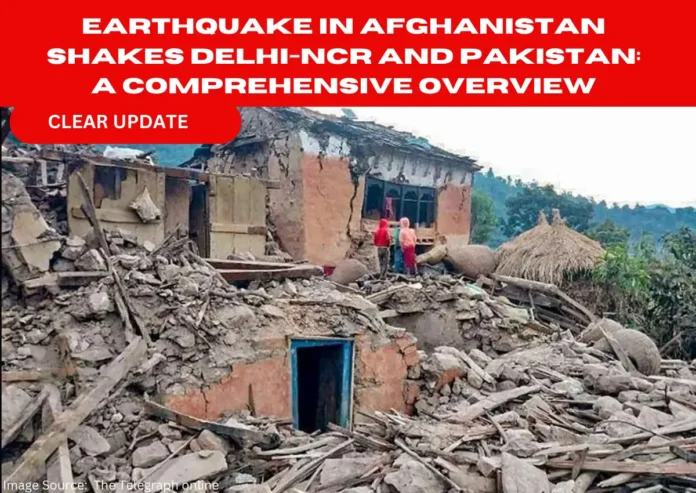Introduction
In the wake of the recent seismic events, our world has once again been reminded of the unpredictable nature of our planet. On Thursday, a substantial earthquake, measuring 6.1 on the Richter scale, originated in Afghanistan, sending shockwaves across regions, including Delhi-NCR and parts of Pakistan. This article aims to provide a detailed analysis of the earthquake, its impact, and the seismicity of the affected areas.
Read Also: Earthquake in Afghanistan Shakes Delhi-NCR and Pakistan: A Comprehensive Overview | Clear Update
The Quake’s Origin and Magnitude
The epicenter of the earthquake was identified at a latitude of 36.48 and longitude 70.45, approximately 241 kilometers northeast of Kabul. The National Center for Seismology promptly reported the earthquake’s magnitude as 6.1, occurring on 11-01-2024, at 14:50:24 IST, with a depth of 220 km. These details not only establish the severity of the quake but also offer valuable information for seismic experts and concerned citizens.
Read Also: Breaking News: Divyakriti Singh, the Jaipur Wonder, Creates History for India | Clear Update
Tremors Across Borders
The tremors were not confined to Afghanistan; significant shocks reverberated in neighboring countries. Cities like Lahore, Islamabad, and Khyber Pakhtunkhwa in Pakistan experienced strong tremors, indicating the widespread impact of the seismic activity. According to the US Geological Survey, the earthquake, with a magnitude of 6.4, struck at a depth of 206.6 km, 44 km SSW of Jurm in Afghanistan at 2:50 pm on January 11.
Read Also: Marvel’s Echo: A Dark Horse in the MCU Show Line-Up | Clear Update
Impact on Surrounding Regions
Despite the intensity of the earthquake, there have been no reported casualties or property damage as of now. However, the quake’s effects reached far and wide, reaching cities in Punjab, Pakistan-occupied Kashmir, and other areas. The Pakistan Meteorological Department recorded a 6.0 magnitude earthquake in the Hindu Kush region at a depth of 213 km, further highlighting the seismic vulnerability of the region.
Read Also: Realme C67 | Specifications | DRT
Aftershock Possibility and Historical Context
Given the high intensity of the earthquake, experts are anticipating potential aftershocks in the affected regions. Chief meteorologist at PMD, Sardar Sarfaraz, drew parallels with the earthquake in Japan on January 1, emphasizing the likelihood of recurring seismic activity. This insight provides valuable information for residents and authorities to remain vigilant in the aftermath of the initial quake.
Read Also: Xiaomi Redmi Note 13 | Specifications | DRT
Pakistan’s Seismic Landscape
Pakistan, being located in a seismic region, frequently experiences earthquakes and tremors of varying intensity. The country faced its deadliest earthquake in October 2005, claiming more than 74,000 lives and causing widespread devastation. Understanding the seismic history of the region is crucial for disaster preparedness and risk mitigation strategies.





[…] Read More: Earthquake in Afghanistan Shakes Delhi-NCR and Pakistan: A Comprehensive Overview | Clear Update […]
[…] Read Also: Earthquake in Afghanistan Shakes Delhi-NCR and Pakistan: A Comprehensive Overview | Clear Update […]